In today’s fast-paced, tech-savvy world, it’s no surprise that our attention spans are shorter than that of a cute and playful puppy. As a result, staying on track can be a real challenge, but don’t worry, there’s hope yet!
There are several ways to improve your ability to focus, and you can roughly divide them into nutritional actions and physical & mental actions. With a little bit of effort and a lot of determination, you can improve your focus and achieve your goals. In this article, I’ll focus on nutritional actions.
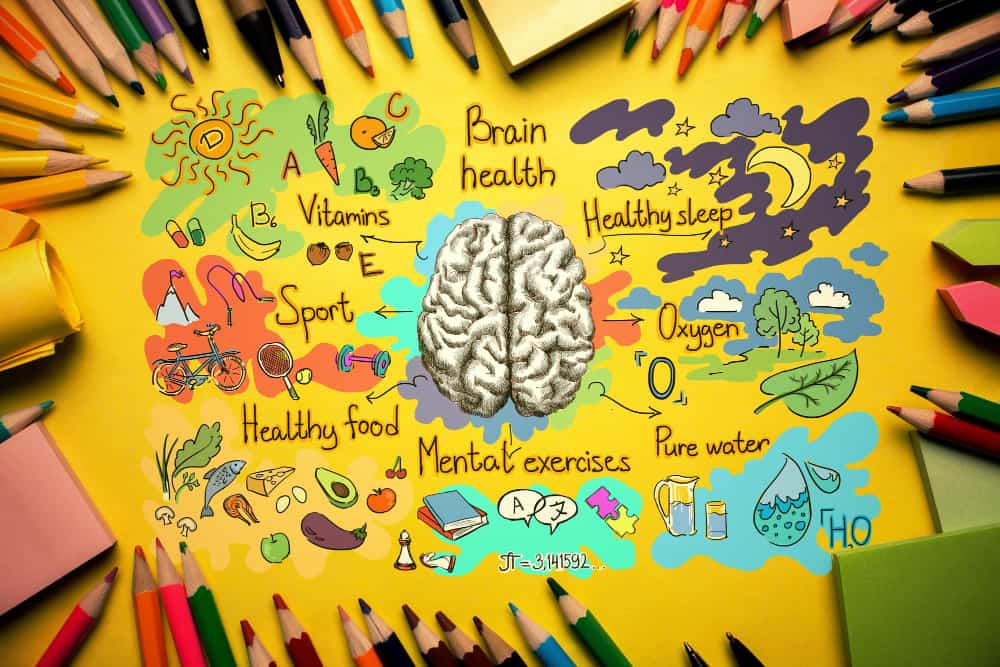
The Connection Between What You Eat and Your Brain Function
From a holistic point of view, your body and mind as a whole work together to get the job done. Want to keep your mind sharp? Start with what you eat. You’ll be amazed at your food choices spectacular effect on your abilities.
And it’s not just about what you do eat. What you’re not eating is equally important! For example, a diet filled with processed foods and added sugars can leave you feeling sluggish and unable to focus. In contrast, a diet rich in fruits, vegetables, whole grains, and lean protein can give your brain the necessary nutrients to function at its best.
So, next time you reach for that bag of chips, think about the impact it may have on your ability to focus and instead go for a healthy, brain-boosting alternative.
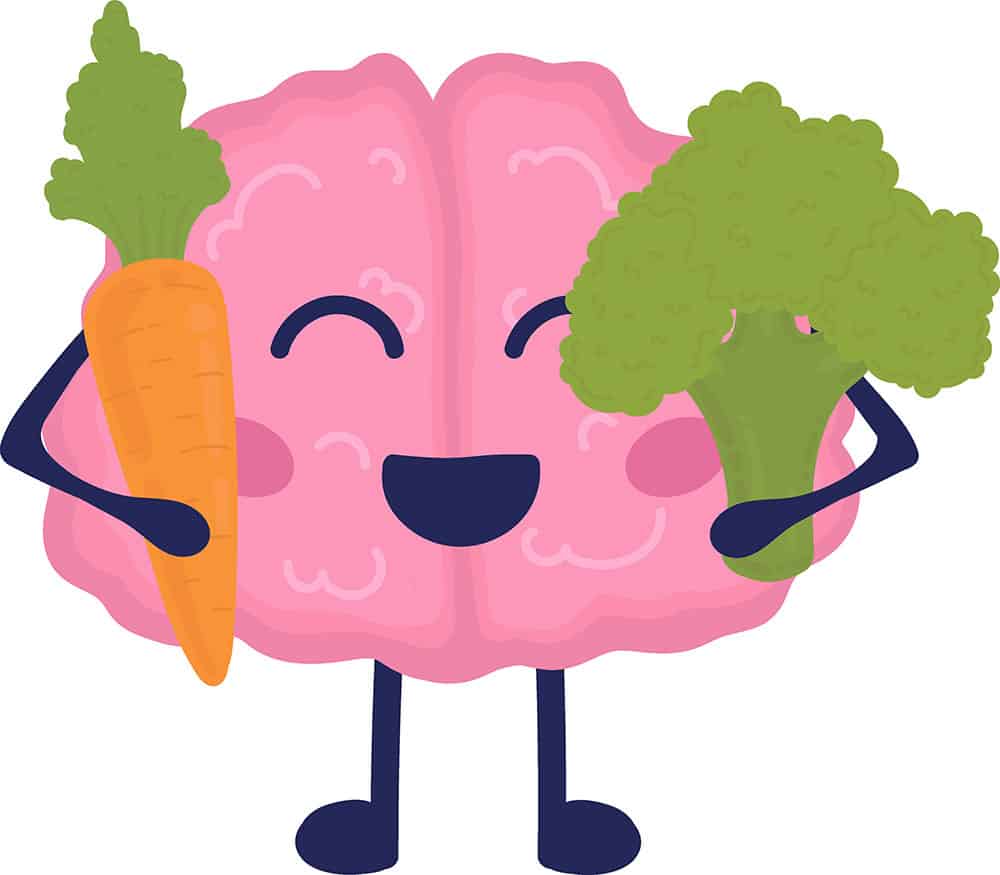
Nutrition for Mental Focus and Cognitive Function: Essential Fatty Acids, B Vitamins, Antioxidants, Minerals and Hydration
Nutrition can play an essential role in maintaining mental focus and cognitive function. Here are some nutritional considerations that can help with focus and concentration:
🧠 The intake of essential fatty acids, such as omega-3 fatty acids found in fatty fish, can support brain health and cognitive function.
Good sources of omega-3 fatty acids include fatty fish such as salmon, mackerel, herring, and sardines. The recommended intake for omega-3s is two servings of fatty fish per week. But what if you don’t like fish, or if you’re vegetarian or vegan?
Good plant-based sources of these omega-3 fatty acids are flaxseeds, chia seeds, walnuts, and tofu. Mix them in your morning smoothies or add them to your afternoon salad!
🧠 Be sure to get enough of the B vitamins. B vitamins, including B6, B9 (folate), and B12, are essential for maintaining overall health, including cognitive function and brain health.
Foods rich in B6 are chicken breast, tuna, potatoes, bananas, and chickpeas. For B9-rich foods, you can turn to spinach, asparagus, broccoli, lentils, beans, avocado, papaya and oranges. And for higher levels of B12, you would need beef, fish (salmon, tuna, sardines, and cod), dairy products (milk, cheese, yoghurt) and eggs.
You might have noticed that B12 is primarily found in animal-based foods. Therefore, if you follow a vegan or vegetarian diet, paying attention to B12 intake and considering taking a supplement is essential. It’s well worth the effort!
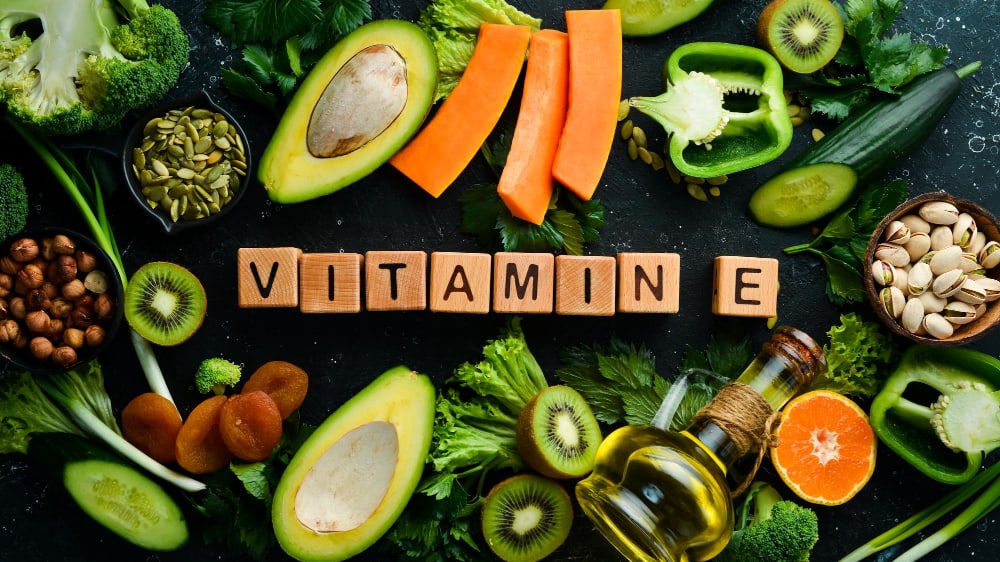
🧠 Antioxidants, such as Vitamin E & C and beta-carotene, play an essential role in protecting your cells from damage caused by free radicals, which can contribute to ageing and the development of chronic diseases. They also protect the brain from oxidative stress and inflammation, and that’s what we’re after here.
You’ll find high contents of these antioxidants in the following foods:
Vitamin E: almonds, sunflower seeds, spinach, avocado, sweet potatoes, tuna, tomatoes, and olive oil.
Vitamin C: oranges, strawberries, kiwi, papaya, guava, bell peppers, spinach, and broccoli.
Beta-carotene: carrots, sweet potatoes, squash, spinach, kale, collard greens, cantaloupes, and apricots.
🧠 Let’s not forget the minerals. More specifically, iron and zinc. These are important for maintaining proper brain function and may help with focus and concentration. Not something you’d like to be short of!
Iron and zinc do have a user manual of their own. However, to absorb them well, you need to pair them with a source of vitamin C, such as citrus fruits, bell peppers, strawberries or tomatoes.
High zinc can be found in oysters, beef, pork, chicken, legumes like beans, lentils and chickpeas, nuts (cashews, almonds and pecans), whole grains (wheat, barley and oats), and cheese.
Iron-rich foods are red meat (beef, pork, lamb), poultry (chicken, turkey), fish (sardines, tuna, oysters), legumes like beans, lentils, chickpeas and spinach, tofu, whole grains (quinoa, millet, oats), and dark chocolate.
It can hardly be called a coincidence that many of us are willing to kill for a big chunk of luscious dark chocolate during our periods. Our blood practically screams for some extra iron!
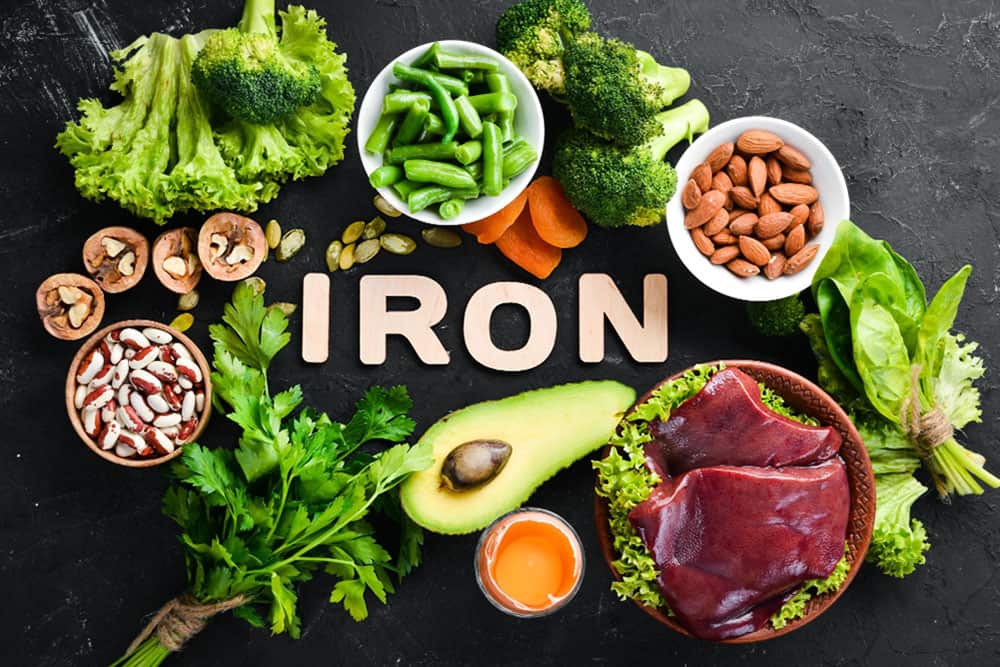
🧠 Not food related, but equally important; stay hydrated! On average, the human body is about 60% water, and dehydration can lead to fatigue, headaches, and poor focus. A simple glass of cold water is usually best, but any non-caffeinated, non-carbonated drink will do. This brings us to the final advice.
🧠 Avoid excessive caffeine intake and sugar. Sugar and caffeine are famous for causing mood swings and energy crashes, making it difficult to focus. Caffeine is also dehydrating. Quite counterproductive when your goal is to stay hydrated.
In conclusion, it’s important to remember that your body and mind are connected and that a healthy diet can play a significant role in maintaining mental focus and cognitive function.
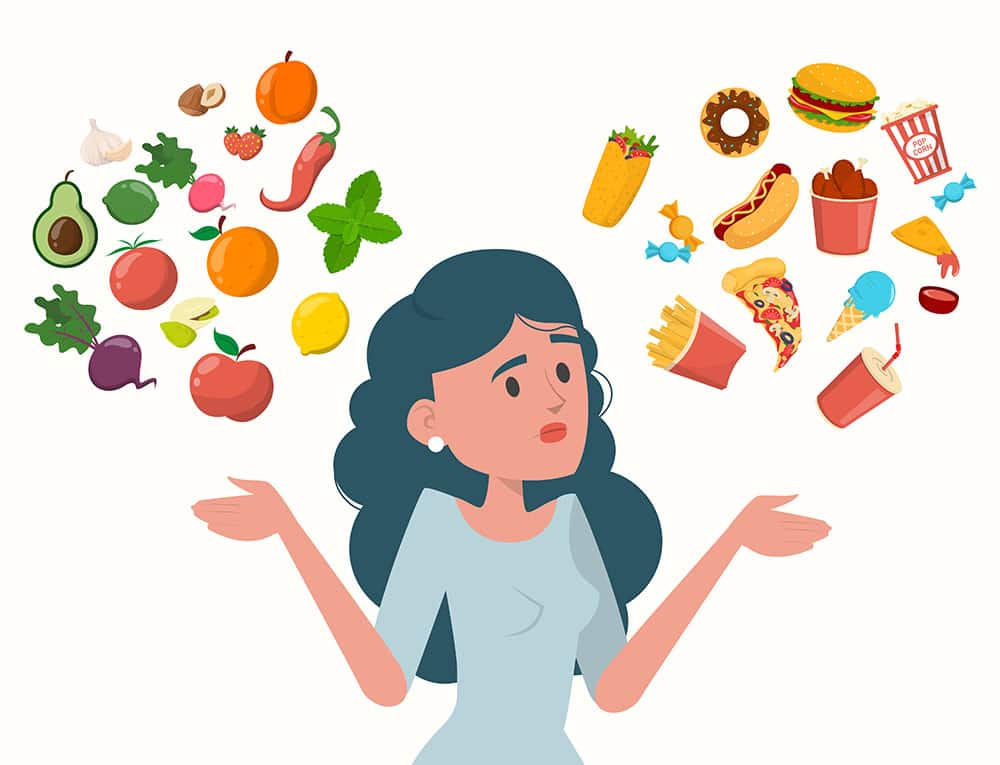
So the next time you’re feeling sluggish and can’t concentrate, think about what you’re eating. It affects your ability to concentrate and stay focused. Make a few minor changes, and you can see spectacular mental clarity and concentration improvements.




